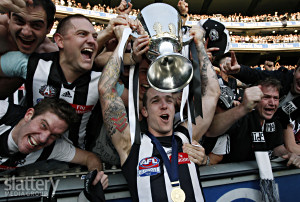Take a look at your favourite football team’s list of coaches next time you’re on the website after you’ve discovered whether Boofhead is likely to play this week.
No doubt you’ll find a coach for everything – senior coach, assistants, conditioning, opposition, defensive, midfield, offensive, nutrition, not to mention the psychologists, trainers and all the support staff under the coaches. It’s no longer a competitive advantage; it’s now the minimum requirement for elite performance.
Now take a look inside your sales division. Can you hear the gentle whistle of tumbleweeds rolling through the office?
At the risk of heresy, my contention here is not to hire more external coaches, but rather to look at developing your own internal coaching culture for your sales team.
Here are the four key coaches for a high performance sales team.
Sales Manager
This person is in charge of recruiting the right players, de-listing the duds who can’t kick under pressure and look at filling the gaps in the list.
In addition the Sales Manager invests time in the stats such as quotas, forecasts, pipelines, account management and prospects. They also lead joint calls and have a bit of Canberra DNA in them to handle the political issues both internally and with clients.
These people are however, not always the best skills coaches.
Skills Coach
This person runs the drills, role plays, exercises and conditions the team to have C Level conversations, build rapport, ask rich questions, present persuasive business cases to clients and eliminate bad habits. ‘Twenty push-ups for interrupting the client three times to waffle on about the Cloud during that last sales call’
They may also provide some product or technical training for sales people.
They help build confidence and re-invigorate good players who have had a couple of bad games by helping them to kick straight again.
Sales Mentors are a different breed again and can be invaluable to all level of sales people.
Often, they can be found in another division or across vertical product lines and offer a broader level of business acumen that helps the sales person to have business conversations with clients as opposed to product rants. The CFO of one of my clients is a great sales mentor even though the only thing he’s ever sold is his daughter’s bike on E-Bay. He discusses trends in financial valuations, insights into C Level management concerns and market opportunities and is unencumbered by being the day to day manager. He can speak freely, often be a sounding board for issues and he provides fresh perspectives on clients needs.
Finally there is the Bid Leader
This coach is charged with inculcating the team with much needed strategic advice on winning major bids including creatively designing business value for clients, steering relationships, deep and unbiased opposition analysis and planning the path to match day success.
Obviously, you may not have the resources, structures or needs of an elite football team to have separate coaches but understanding the key purposes of each of these coaches may highlight where your team can improve to compete at the highest level.
If you’re not coaching your team, just maybe the opposition is coaching theirs.
At least one of you should be playing to win.
Written by Elliot Epstein, CEO, Salient Communication
Elliot has trained and coached over 3000 people throughout the Asia Pacific Region and is a sought after keynote speaker on Sales, Negotiation, Leadership and Presentations.
E: elliote@salientcommunication.com.au
© Salient Communication

Login / Register
We respect your email privacy